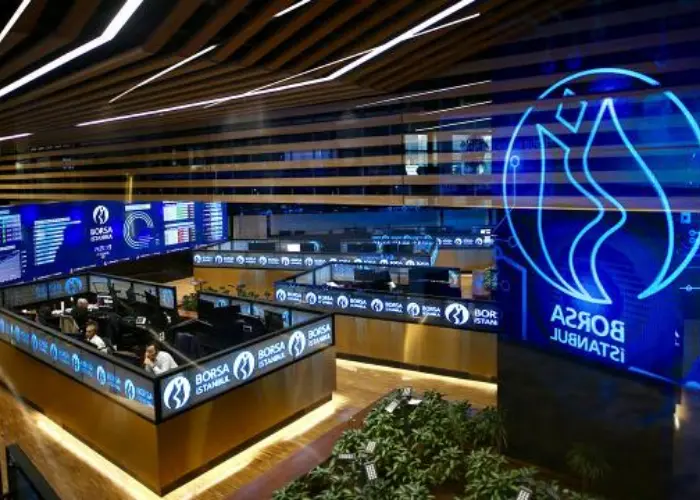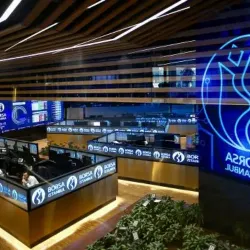Among the industries that make it easier to start a small business in Turkey is the services industry, which accounts for approximately 65 percent of the Turkish GDP, while agriculture accounts for approximately 26 percent. However, the agricultural sector remains one of Turkey's largest job markets. Tourism is also a significant source of revenue. Turkey is ranked 6th among the most popular destinations in the world, and financial institutions and the construction industry are also significant revenue generators.
Istanbul has a strong economy and a very favorable business environment. The city is a vibrant economic growth engine with a diverse structure and international renown. Istanbul has sustained its strong international position and has a well-known city brand.
Istanbul's economy has undergone rapid structural change over the last 15 years. Istanbul's economic role has shifted from that of a service center to that of a vibrant urban center with powerful, multifaceted international ties that have grown significantly with the rise of Turkey's broad vision. Because of strengths in several new areas, which include significant clusters in experience and understanding sectors, the economic system is now highly diversified.

For many businesses, Turkey is quickly evolving as a high-growth market. Istanbul is the engine of this fascinating financial system, offering a wide range of opportunities. While European cities find it difficult to restore from the recent international crisis, Istanbul expands its FDI portfolio into new markets.
So as to keep up with international trends and maintain a competitive edge as an investment location, Istanbul decided to transform its economy after the 1980s, diverting attention away from low-cost manufacturing and toward knowledge-based industries and high-value-added services.
Istanbul was named "the ninth major European City of the Long term 2018/2019 regarding Business Friendliness" and "the Best Southern European City of the Future 2018/2019." The Business Friendliness Index is based on 23 judging considerations such as the overall amount of high manufacturers, ease of doing company, corporate tax, investor protection index strength, and so on.
33 of the fastest-growing industries were based in Istanbul, 14 in Ankara, and 9 in İzmir. Tripenia IT Tourism Inc. of Istanbul took first place, increasing its turnaround by 5,808 percent in two years. Türktem Bilişim Construction LTD. STI of Ankara placed second with a growth rate of 2.543 percent, and Finder Fire Safety Electronic Systems Inc. of Antalya came in third.
Understanding Turkey's population patterns are the first step in targeting potential buyers of luxury goods. Between sixty and eighty percent of Turkey's luxury market is focused in Istanbul, the capital city, where lifestyles reflect European cultural influences. Global luxury houses and greater brands have flocked to Istanbul in droves over the last decade, not only to the ancient and upscale Nişantaşi district, but also to newly developed retail hubs sprouting up throughout the sprawling city, such as Istinye Park, Kanyon Mall, and Zorlu Centre.
Wealthier visitors, on the other hand, are flocking to Turkey in greater numbers, pulled to Istanbul with an increasing amount of large malls and luxury hotels
Frequently Asked Question
What can be done for keeping up with international trends and maintain a competitive edge as an investment location?
To remain competitive as an investment location and to keep up with international trends, Istanbul decided to shift its economy after the 1980s, shifting focus escape low-cost production and toward knowledge-based industry sectors and high-value-added services.
Does Istanbul have a strong economy and favorable business environment for fast growth market?
Istanbul has a robust economy and a welcoming business environment. The city is a thriving economic growth engine with a compelling and global reputation. Istanbul has maintained a strong international presence and a well-known city label.
Does Istanbul's economy has undergone a rapid structural change?
Over the last 15 years, the Istanbul economy has undergone rapid structural change. Istanbul's economic role has started shifting from that of a service department to that of a lively urban center with strong, multi-faceted international connections that have grown significantly with Turkey's rise.
 English
English  Indonesian
Indonesian  Urdu
Urdu  Taiwanese
Taiwanese  Russian
Russian  Romanian
Romanian  Portuguese
Portuguese  Persian
Persian  Macedonian
Macedonian  Korean
Korean  Japanese
Japanese  Italian
Italian  Indian
Indian  Hungarian
Hungarian  Greek
Greek  German
German  Croatian
Croatian  Chinese
Chinese  Bulgarian
Bulgarian  Arabic
Arabic  French
French  Spanish
Spanish 


